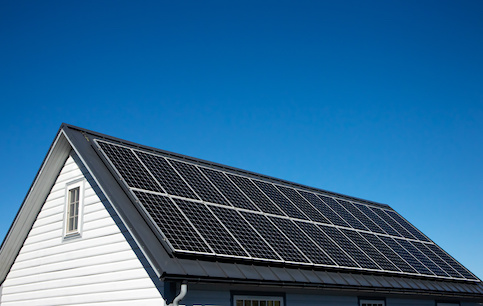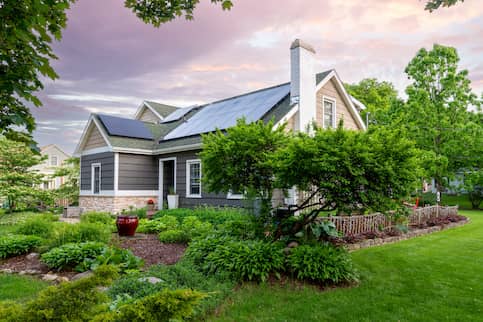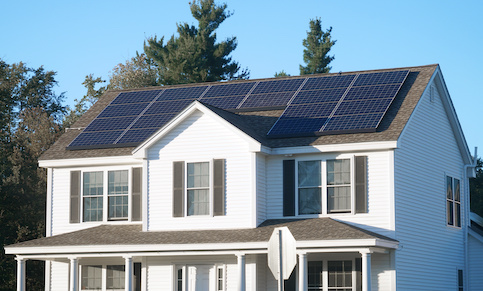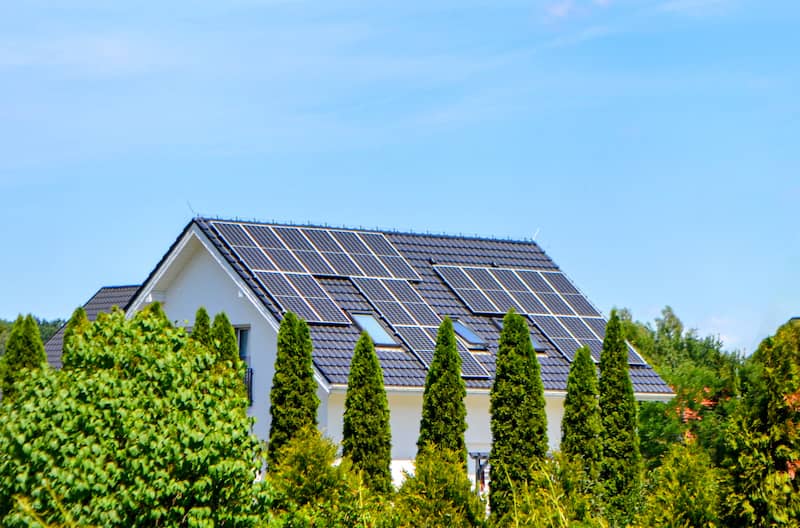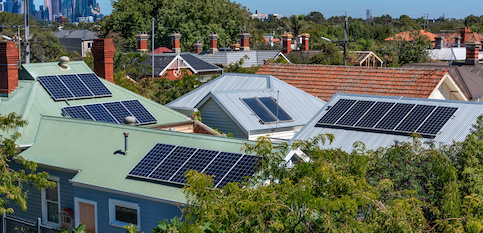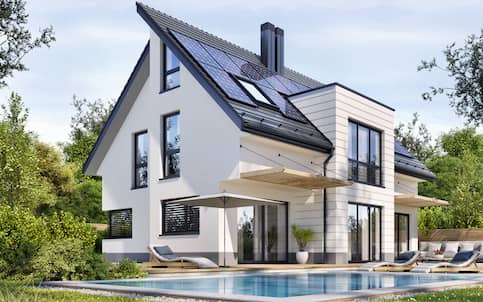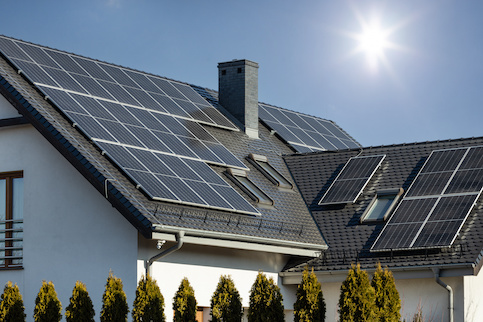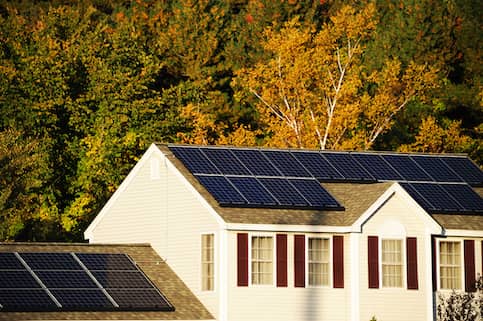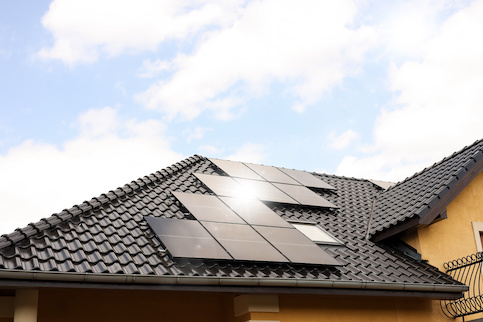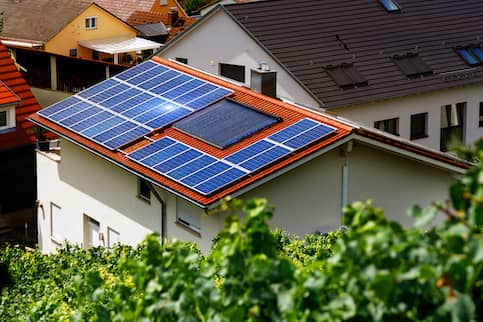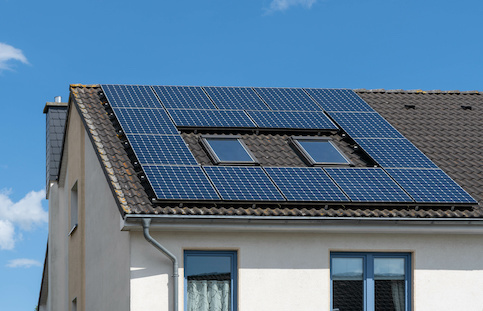Selling A House With Solar Panels: Everything You Need To Know
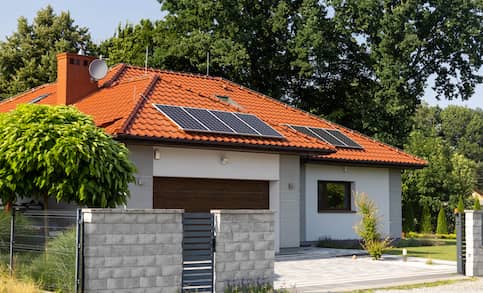
Outfitting your house with solar panels can be a great way to take advantage of an eco-friendly energy source for your home while also saving money by lowering your energy bills. In addition, a federal solar tax credit extended by Congress in 2022 can help homeowners offset the purchase and installation cost of solar panels and other forms of alternative energy.
Beyond the clean energy and tax benefits of solar power, some evidence suggests it may benefit the homeowner when the time comes to sell. Studies show that a solar energy system increases a home’s value, which means a more robust financial reward for the seller.
While selling a house with solar panels has benefits, some complicating factors are important to also consider, especially if you’re selling a house with financed solar panels or have a purchase power agreement.
Let’s delve into what you can expect if you’re looking to sell a house with solar panels.
Benefits Of Selling A Home With Solar Panels
Marketing a home as one with solar panels can have multiple benefits. Let’s break them down.
You Can Promote Lower Energy Costs
For starters, the new homeowner is likely to save on their monthly utility bills. Homeowners in some areas of the country can also save on their electric bill by selling their unused generated energy back to the grid if they have an agreement with the power company. Renewable energy will also appeal to buyers who are looking to be eco-friendly in their energy usage.
You May Be Able To Sell Faster
Data available for 2021 from Rocket Homes shows that homes with solar panels spent 13.3% less time on the market than homes without solar power. In other words, solar panels could be a boon if you’re looking to sell your home quickly.
There’s a pretty defined timeline for selling a house, and certain steps in the process are going to take longer. For instance, time will be allotted for an appraisal and a home inspection in most cases. However, this could shorten the time between when you put your home up for sale and when you accept an offer.
You May Be Able To Sell For More
Not only could you sell faster, but owners of homes with solar panels have a decent chance of selling for more. This is particularly true if comparable properties in your area have sold for more because they have solar panels.
Clean Energy And Lower Bills May Be A Selling Point
Solar panels on a home are a shining beacon for a certain type of buyer. For example, some buyers want to participate in a clean or green energy movement. Others are going to be interested in saving on utility bills. How much you might save could depend on the area where you live, but don’t discount the extent to which saving money can appeal to potential buyers.
See What You Qualify For
Home Purchase
Home Refinance
Tap Into Equity
Special Considerations When Selling Solar Homes
A solar home can be thought of as any home that’s partially or completely powered by energy from the sun. Given the broad definition, a solar home can look quite different depending on the way you go about it. Getting solar panels of your own is just one option.
Depending on the type of arrangement you have for getting your solar energy, you could have some special considerations to work through when you sell your home.
Selling A Home With A Solar Lease Or Power Purchase Agreement (PPA)
If you don’t want to deal with upfront solar panel costs, you might look into a solar lease or a purchase power agreement (PPA).
With a solar lease, you contract with a specific solar company or solar installer and pay a flat monthly rate for the equipment.
With a purchase power agreement, you pay a fixed rate for each generated kilowatt-hour based on your use of the solar equipment installed by a third party. With either of these arrangements, the idea is to generate the electricity at a cheaper rate and pocket the difference between what your energy bill would be without a solar offset and what you’re paying the company to maintain your equipment.
Two important considerations are worth taking into account if you’re looking to sell your home after putting one of these arrangements in place. First, because you don’t own the equipment, it doesn’t get counted toward your property value. You’re not going to necessarily sell your house for more under this arrangement.
Secondly, if you sell the house before the end of your lease term or PPA, you and the buyer must agree on how the solar lease will be handled in light of the options in your solar contract. Although these options vary from one contract to another, they often include:
- Prepayment: The seller can prepay the remainder of the contract. In this case, the buyer assumes any responsibilities under the contract, but not the payment.
- Assignment or assumption of contract: The buyer takes over all payments and responsibilities of the contract initiated by the seller.
- Purchase: The seller has the option to purchase the solar panels at a price listed in their contract, so the buyer doesn’t have to deal with it. Additionally, if the panels are purchased, the home value can reflect this.
It’s important to note that if the buyer takes over a solar lease, this is included in their debt-to-income ratio (DTI) for qualification purposes. This isn’t the case with a PPA, which is treated like a utility payment.
Selling A House With A Solar Panel Loan
Now let’s say you opted not to lease your panels but you’re paying for them over time with a loan. When solar installers provide a loan, they often put a lien on a homeowner’s title and remove the lien when the loan is paid off.
To sell your property to buyers who are coming in with a mortgage, you’ll likely be required to pay off your solar loan at or prior to closing. Mortgage companies want to make sure new homeowners aren’t taking on additional responsibilities, and a solar loan would be one.
The good news? Because you own the solar panels, they can be included in your property value to the extent that it makes a difference in your market.
Get the cash you need for your next project.
Quicken Loans makes getting a personal loan fast and easy.
Mistakes To Avoid When Selling A House With Solar Panels
A few of the challenges associated with selling a house with solar panels can be easily avoided.
Lack Of Seller Transparency
You’ll be better off the more you can tell a buyer about how much they can realistically expect to save, how the system is maintained, any warranty that comes with it, and the lifespan of the solar panels. Being honest and upfront about the panels will be beneficial for the buyer and seller relationship.
Seller Skepticism
On the flip side, you don’t want to be negative, either. Solar panels can be quite an investment, and it can take quite a long time before it fully pays off. That timeline is also going to vary quite a bit based on where you live and how much sun you get.
It’s important to remember that the buyer won’t have to make the upfront investment you did, so the solar panels may pay off for them in savings much faster. Solar panels should always be a selling point and not a detraction.
Selling A House With Solar Panels FAQs
Below are a few frequently asked questions about selling a home with solar panels.
Can I sell a house with solar panels?
It’s certainly possible to sell your house with solar panels. In fact, it’s likely you’ll sell even faster than you would if the house wasn’t equipped with solar power. But selling a house with solar panels can bring about some challenges, so it’s best to be as prepared as possible.
Is it harder to sell a house with solar panels?
Based on available data, houses with solar panels generally don’t have a problem selling and selling fairly quickly. Selling a house with solar panels has several advantages, and one is that you typically have your pick of prospective buyers.
How much do solar panels add to home value?
This is where recently sold comparables with solar panels can help. The purchase price of nearby homes with solar can be a strong indicator of how much you can expect to reap from the sale of your solar panel-equipped home.
You can also use certain tools to estimate the value that solar panels bring to your home. Similarly, appraisers can certify green home features, including solar panels.
How much can I expect to save on energy bills?
Energy bills can easily be shared with the personal information on them blacked out. Therefore, sellers can use their before-and-after utility bills to pass energy savings information along to buyers.
How long can I expect my solar panels to last?
This question is a bit tougher to answer, but you can always rely on the advice of your solar company and/or installers. One good indicator of solar panels’ expected lifespan may be how long the solar company is willing to warranty the equipment. If a warranty exists, make sure it stays with the house – and new owner – once you sell the home.
The Bottom Line: Selling A House With Solar Panels Can Attract The Right Buyer
Selling a home with solar panels can involve some challenges. The only way you can include solar panels in your property value is to purchase them outright. If you haven’t yet paid off the loan for solar panels, you may have to pay it before you sell. If you lease your panels, you and the buyer will have to negotiate how to handle that arrangement. And some obstacles to selling a house with solar panels may simply result from a lack of knowledge.
Still, the energy-saving benefits and the allure of participating in more eco-friendly energy practices attract a lot of buyers, so the investment can be worth it if you can find the right buyer.
Start Your Next Home Project Today.
Discover your personal loan options with just a few clicks.
